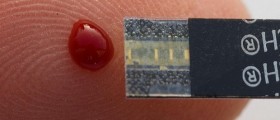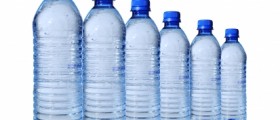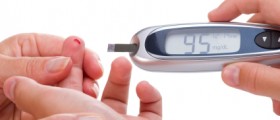Information on Excessive Thirst in Children
Excessive thirst in children may be an indication and a symptom of numerous different types of medical conditions, disorders, and diseases. A large number of children complain of being thirsty quite often.
Sometimes their parents simply ignore the symptom because they think that the children complain of thirst because of dehydration. Excessive thirst may be an indication of various underlying conditions and some of them may be quite serious.

Excessive Thirst Causes in Children
The most common cause of excessive thirst in children is probably diabetes. Diabetes mellitus is a medical condition that consists of the triad known as polyphagia, polydipsia, and polyuria. Polyphagia is a medical condition that involves excessive hunger, polydipsia is another medical condition that involves excessive thirst, and polyuria can be characterized by excessive urination.
The cause of those medical conditions is an increased amount of glucose in the child’s bloodstream. This type of diabetes is referred to as type 1 diabetes or insulin-dependent diabetes and it is the type that usually occurs in children.
The beta cells in the pancreas which are in charge of producing insulin get destroyed and the body cannot produce enough insulin. Because it occurs in children it is also sometimes referred to as juvenile diabetes.
Another medical condition that may be causing excessive thirst is diabetes insipidus. It involves the deficiency of a specific anti-diuretic type of hormone and the insensitivity of the kidneys to the same type of hormone. The condition is commonly affiliated with frequent urination which ultimately results in excessive thirst in children.
- Central diabetes insipidus. With this type, not enough ADH is made or secreted. This is most often because of damage to the hypothalamus or pituitary gland. Typical causes include injury to the brain and rare genetic disorders.
- Nephrogenic diabetes insipidus. With this type, the kidneys don’t respond normally to ADH. This is most often because of medicines or chronic disorders. Some genetic disorders can affect the kidneys from birth. Other causes of kidney problems include kidney failure, sickle cell disease, and polycystic kidney disease.
- Dipsogenic diabetes insipidus. This is caused by a problem with your child's sense of thirst. It causes your child to be abnormally thirsty and drink a lot. Your child then produces more urine.
- Gestational diabetes insipidus. This occurs only during pregnancy and usually goes away after your baby is born. It may come back if you have another pregnancy.
- A child is more likely to get diabetes insipidus if they have a head injury, brain surgery, a brain tumor, kidney disease, or use certain medicines, such as lithium.
- Treatment may be done with synthetic ADH. This may be taken as a pill, injection, or nasal spray. Other treatments include medicines that help the body make ADH or use it better. This includes NSAIDs, such as ibuprofen, and water pills (diuretics).
- Your child must also drink plenty of fluids. This is to make up for the amount of fluids lost by the body through excess urine and to protect your child from dehydration. You may need to watch your child’s fluid intake and urine output. Your child's healthcare provider will check the amount of sodium in your child's blood often to make sure the medicine dose is correct.
One more medical condition that may be associated with excessive thirst in children is dehydration. It involves an excessive loss of fluids from the human body and it may be triggered by a large number of different factors. Viral infections are known for causing dehydration along with diarrhea, high fever, and vomiting. There are also certain types of parasitic and bacterial infections that can be held responsible for the occurrence of dehydration.
Other Causes of Excessive Thirst in Children
There are also different types of kidney diseases that can be held responsible for the occurrence of excessive thirst in children. The treatment always depends on the underlying cause of the condition.

















Your thoughts on this
Loading...